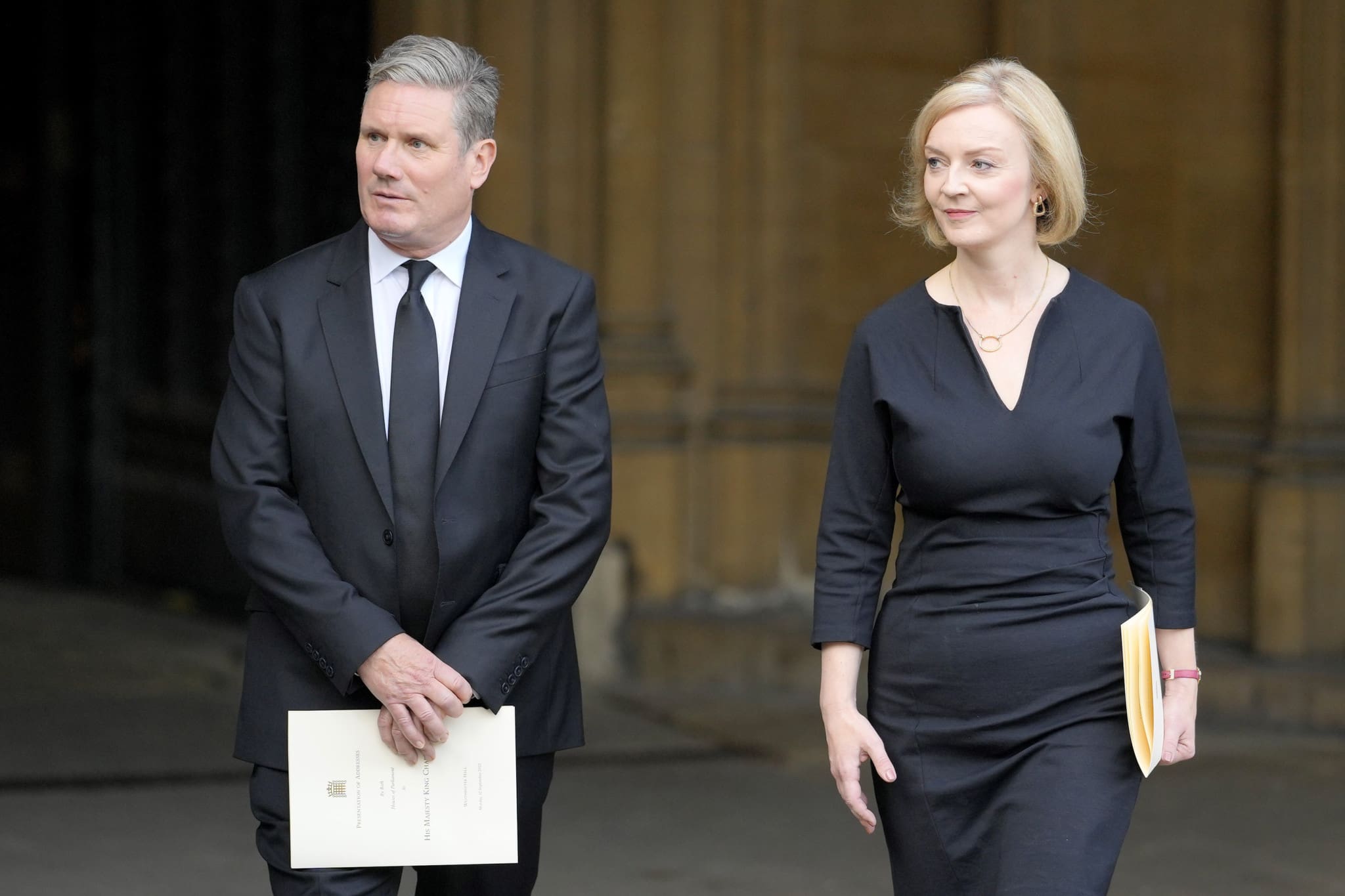As Britain’s commentariat fawns over what it is reporting as Keir Starmer’s government-in-waiting, and concurrently slams the Conservative’s “radical” — twenty years ago it would have just been called conservative — economic plan to stimulate growth, there is still ample evidence that British voters are not fully on board Labour’s red locomotive seemingly destined for Downing Street.
At Labour’s annual party conference in Liverpool on Tuesday, Britain’s leader of the opposition delivered his keynote speech in which he outlined his party’s plan for the country, promising a “fresh start” for the U.K., pledging to invest in the NHS and green energy, and vowing to “spread opportunity to all.” He accused Liz Truss’ Conservatives of losing control of the economy, and followed up his criticism of Chancellor Kwasi Kwarteng’s plan to increase borrowing and cut taxes on Wednesday by calling for the recalling of parliament and demanding a U-turn of last week’s mini-budget announcement.
Britain’s mainstream media described Starmer as a prime minister-in-waiting following the speech, reporting that he had grasped the opportunity during his televised speech to heap pressure on the newly-formed Conservative administration which is using its current parliamentary majority and the two-year window before the next general election to announce economic plans that it knew would be unpopular in the hope that its policy decisions would be vindicated by the time Brits next head to the polls.
[pp id=50202]
Left-wing media outlets heralded a recently-released and damning YouGov poll for the Times newspaper which showed Labour storming ahead of the Conservatives with a 17-point lead, a survey they believe justifies their claims that Brits are now firmly in the left-wing camp of British politics.
However, just how enthusiastic is the British electorate toward the Labour party, and to what extent is the support it is currently attracting simply down to displeasure over the seemingly endless Tory infighting and self-sabotage?
Well, judging by the latest analysis provided by the same polling outfit, YouGov, it would appear that the argument voters are simply angry with the Conservatives is a reasonable one, and they are turning to Labour as the only other option, however credible.
In fieldwork conducted on Sept. 27-28, voters were asked the extent to which they believed Keir Starmer looked like a prime minister in waiting — 41 percent said he did not, while 36 percent were of the opposing view. Similarly, more voters (39 percent) believed that Labour did not look ready for government than those who believed the party did (37 percent).
While 40 percent believed the Labour party understands the concerns of people like them, beating 37 percent who disagreed, more voters (37 percent) believed the party did not share their values, compared to 34 percent, and in a rather damning indictment of Starmer’s keynote speech, 39 percent did not believe that Labour has a “clear plan for Britain,” compared to 31 percent.
[pp id=50043]
The data did however show a clear trajectory in Labour’s favor, with the percentage of those who believe the party looks ready for government increasing 11 points from 26 percent to 37 percent within the last month, and the percentage of those who do not see Starmer as a prime minister in waiting falling from 57 percent to 41 percent in the same timeframe, however the poll results can hardly be viewed as a ringing endorsement of the Labour party.
The Conservatives’ ousting of popular former leader Boris Johnson, who would have won a three-horse race among the party membership in a leadership contest with Liz Truss and Rishi Sunak, could still prove to be a fatal mistake for the party. Furthermore, the announcement of fiscal policy which undoubtedly benefits the country’s richest, in the hope that U.K. plc will be viewed favorably by global investors and stimulate both job and economic growth, will do the party’s popularity no favors at this time.
However, the YouGov poll shows that voters opting to switch sides right now are doing so reluctantly, and many are prepared to back Labour despite not having full confidence in its parliamentary party’s ability to govern.
The silver lining for the Conservatives is that despite being in government for 15 years, these voters are still up for grabs — they have not yet nailed their colors to Labour’s mast. Given the party’s very public faux pas in recent times, it is somewhat incredible that these votes remain in reach, and if anything only further highlights just how low the Labour party sank in the eyes of the British electorate over the last decade.
Either a change in tack by the Conservative administration, or vindication of the fiscal and monetary policies it intends to implement over the next two years could still see voters change their minds before the next general election. One thing is for sure, it would be political suicide for Liz Truss to call for a public vote before her economic policy begins to bear fruit, and even then she might not have the Boris chutzpah necessary to retain the first-time Tory voters acquired in the 2019 general election.






